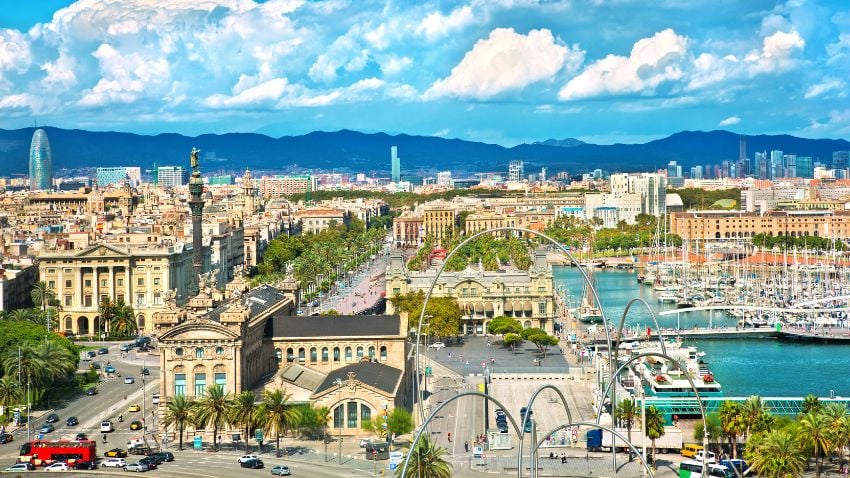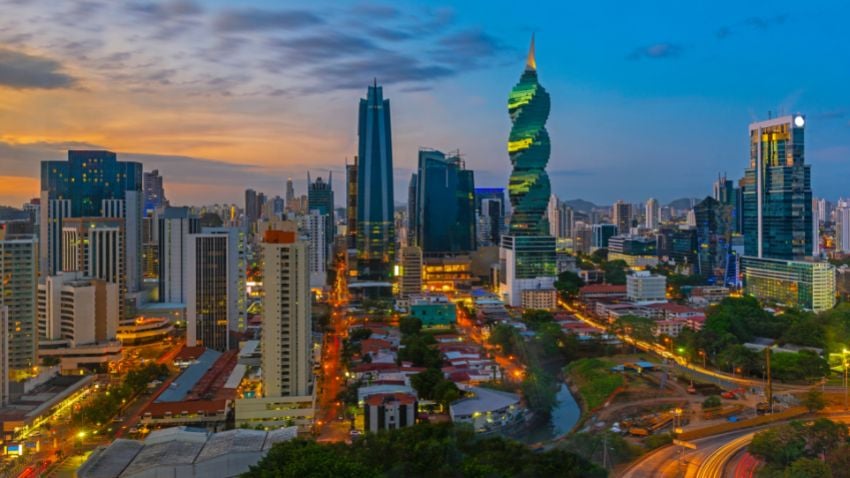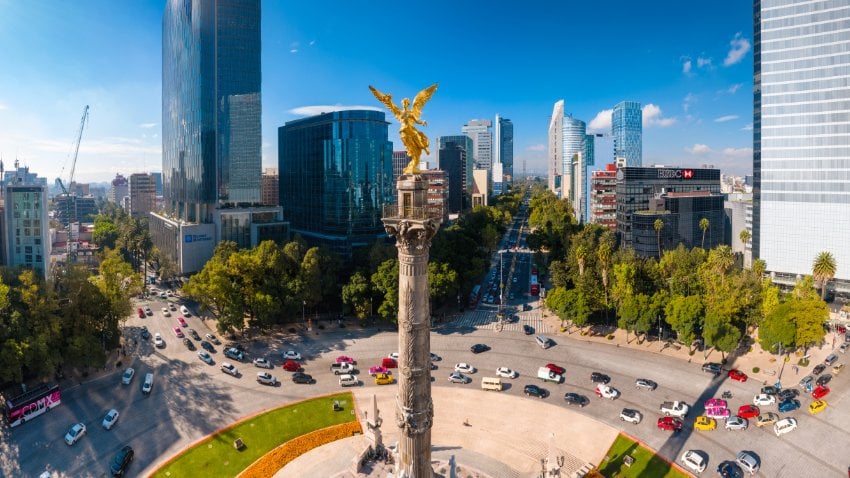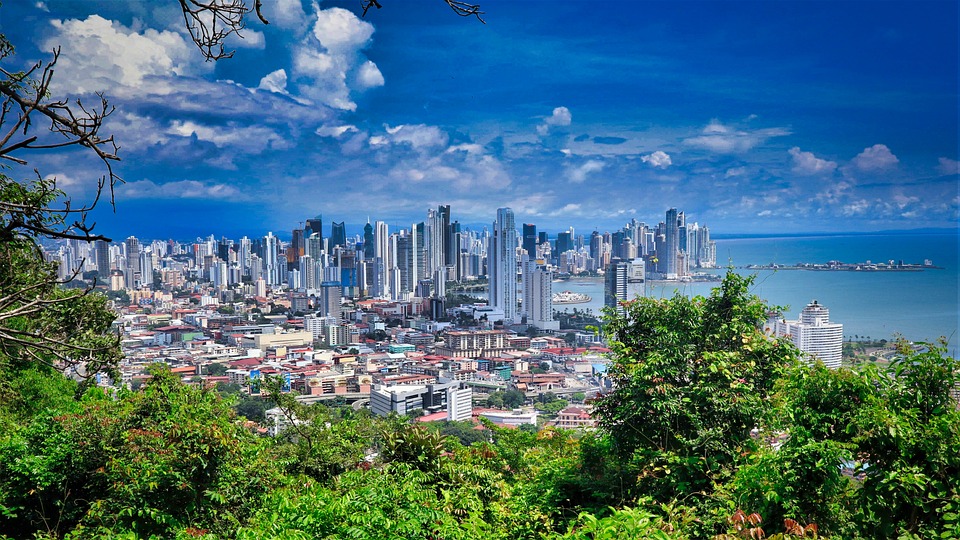Best Cities To Live In Mexico In 2026
Mexico remains one of Latin America’s most compelling destinations, especially for North Americans. More than a million expats call it home, and tens...

6 min read
The subject of structures is fundamental if you plan to secure your new life abroad. As I pointed out in previous articles, Civil and Common Laws differ in many aspects in regards to corporate structures. For instance, whereas a Civil Law jurisdiction usually offers foundations, a Common Law one offers trusts. If used correctly, these financial and legal tools will help you protect your wealth, privacy, assets, and interests.
Law is a very complex subject, and if you are a beginner to the expat lifestyle or a seasoned veteran who wants to go to the next level, you must learn and apply the rules to your advantage. I have already covered many trusts and foundations in previous articles, including my favourite, the Panama Private Interest Foundation; today, I will show you what a “Sociedad Anónima” is, where you can use this type of corporate vehicle, and some of its main features.
Related content: The Differences Between Trusts And Foundations

Panama City
Simply put, a Sociedad Anónima (for short, “S.A. ") is a commercial corporation in Latin American countries and Spain. The most correct English translation of the term could be “Public Limited Company,” but a literal translation would be “Anonymous Society.” A Sociedad Anónima is a company of commercial nature that performs an economic activity with its capital, which is divided into shares and constituted by the partners' contributions. If there are earnings or debts, investors respectively enjoy or face the consequences according to how much they contribute.
A Sociedad Anónima is the most widespread legal-corporate entity among big corporations in Spain and Latin America. Thanks to it, an organization with vast resources allows its partners to min imize investment risks because the capital is divided into independent shares. As a result, the company has multiple owners controlling it via their shares. These shares can be sold in the market if the shareholders make that decision. It is also noteworthy that shareholders can remain anonymous, hence the name in Spanish Sociedad Anónima.
Relevant article: What Is An International Business Corporation (IBC)?

Toledo, Spain
Here, it is crucial to distinguish between the Spanish and the Latin American Public Limited Companies. Indeed, the regulations for a Sociedad Anónima will vary from country to country. Let us first analyze the Spanish Sociedad Anónima.
Some entities, such as banks, insurance companies, and venture capital companies, must inevitably adopt this corporate structure. On the other hand, some companies freely adopt this because it is in their best interest.
The minimum capital required to establish a Sociedad Anónima is €60,000 ($63,567 USD). A Sociedad Anónima allows for easier access to new partners. Plus, it offers excellent protection to creditors. Another essential concept is that of social capital, which is nothing but the amount of money each partner contributes. In other words, it is the total sum of the contributions made to the corporation.
The company’s name must be unprecedented and paired with the acronyms S.A. or S.A.U. (short for “Sociedad Anónima Unipersonal,” a one-person S.A.). This implies that a Sociedad Anónima can be set up with the presence of a single partner, but the name paired with the acronym “S.A.U.” must appear on every legal document.
The contributions are, in most cases, monetary but can also be non-monetary, as in the case of Real Estate. In this regard, Sociedad Anónima has strict regulations in place. The Business Registrar (“Registrador Mercantil”) must appoint surveyors who will ensure that the evaluation of the property’s value is not inflated, which would imply fraud for the creditors and the rest of the partners.
When handing out profits, the Sociedad Anónima must pay a fraction of that money. This gives birth to the concept of the legal or statutory reserve. These funds represent 10% of the profits and will be accumulated upon reaching 20% of Social Capital. This means that the creditors are protected should the company not work correctly.
Shares-wise, a creditor's power is proportional to the number of shares they possess. This implies higher value when voting as well as more profits. Nevertheless, the company’s statutes can establish a limit to the number of votes per shareholder so that no one can have unlimited influence. A shareholder can freely transfer their shares to a third party through the Spanish stock exchange (“Bolsa de Valores”) as long as the statutes permit it. In some cases, the shareholder must ask for permission from the general board (“Junta General”).
The Sociedad Anónima must pay corporate tax (up to 25%) and VAT (up to 21%). While partners and administrators are classified as freelancers (“trabajadores autónomos”), the workers are taxed under the general tax regime.
Related content: The Basics Of How To Get A Second Passport Or A Second Residency

Independence Monument in Mexico City
As I said before, regulations differ in each country. So let us go through three examples of the more popular ones so you know how they work.
Its closeness to the US makes Mexico a great place for foreign companies to expand in Latin America. Indeed, Mexico ranks 14th in terms of worldwide GDP and has the second-largest GDP in Latin America, right after Brazil. Mexico offers cheap labour and a myriad of commercial opportunities accessible to multinational US corporations.
The General Law of commercial enterprises (Ley General de las compañías comerciales) provides investors with various types of legal entities to carry out their commercial activities. The most common corporate categories are the Sociedad Anónima and S.R.L. (short for “Sociedad de Responsabilidad Limitada,” in English LLC). The Sociedad Anónima is the equivalent of a US corporation and is designed to benefit large corporations or manufacturers through specific requirements. A Sociedad Anónima can only be established through an act of incorporation before a Notary Public.
The Sociedad Anónima must meet the following requirements:
Otherwise known as the Switzerland of Latin America, Panama’s business-friendly policies and political stability make this country a good expat destination. A Sociedad Anónima in Panama is regarded as a “Corporation of Shares.” There is no legal obligation to divulge the names of the shareholders, and their assets are separate from the corporations. However, under the new international banking regulations, the corporation must share the shareholder’s information with the bank at hand if the corporation has a bank account. Some of the benefits a Panamanian Sociedad Anónima offers are the following.
Despite not making it into the top 3 Latin American economies in terms of GDP, this country has a very diverse and robust business environment and is indeed one of the best countries to open a business in the region. The country specializes in services, agriculture and industry. The last sector represents 25% of GDP and employs over 20% of the working population. Agriculture employs around 9% of the working population and represents 6% of GDP, whereas the service sector employs 71% of the working population and contributes to 69% of GDP. Let us see what an Uruguayan Sociedad Anónima can offer.

Panama City
Spain is indeed an aggressive country in terms of taxation, and it is tough for regular Spanish citizens to establish a Sociedad Anónima. However, if you need to operate in Spain and have the required capital, a Sociedad Anónima will provide you with some benefits. As for Latin America, since there are multiple countries, I wanted to show you how the Sociedad Anónima structure works in three of the most notable in the region.
Mexico is indeed a country with much potential, and its geographical position helps greatly. Its own Sociedad Anónima is a good option for large corporations and is less restrictive than a Spanish one. Panama is a significant player in the financial services industry. As such, its particular Sociedad Anónima will be an excellent option for doing business and protecting various assets.
Finally, a Sociedad Anónima in Uruguay is more costly but fantastic if you have a huge capital to start with, especially to work on a project related to the service or industrial sectors. If you need help getting started, you can always contact Expat Money, and I will be happy to help you with your investments and growing your assets.
If you want the best intel from the expat world, including profitable offshore opportunities, little-known tax-saving strategies, and hard-won insights on immigration, passports, and Plan-B residencies, all delivered to your inbox every single week, then join our daily correspondence, EMS Pulse®. Currently enjoyed by over 84,000 expats and expat-hopefuls worldwide. Fill in the form below to join our newsletter free:

Written by Mikkel Thorup
Mikkel Thorup is the world’s most sought-after expat consultant. He focuses on helping high-net-worth private clients to legally mitigate tax liabilities, obtain a second residency and citizenship, and assemble a portfolio of foreign investments including international real estate, timber plantations, agricultural land and other hard-money tangible assets. Mikkel is the Founder and CEO at Expat Money®, a private consulting firm started in 2017. He hosts the popular weekly podcast, the Expat Money Show, and wrote the definitive #1-Best Selling book Expat Secrets - How To Pay Zero Taxes, Live Overseas And Make Giant Piles Of Money, and his second book: Expats Guide On Moving To Mexico.

Mexico remains one of Latin America’s most compelling destinations, especially for North Americans. More than a million expats call it home, and tens...

South Korea is far more than K-pop and K-dramas. It is a country known for outstanding food, from bustling street markets to high-end dining, as well...

Asia is one of the most fascinating regions in the world for travel, offering an extraordinary mix of cultures, histories, and landscapes. From...